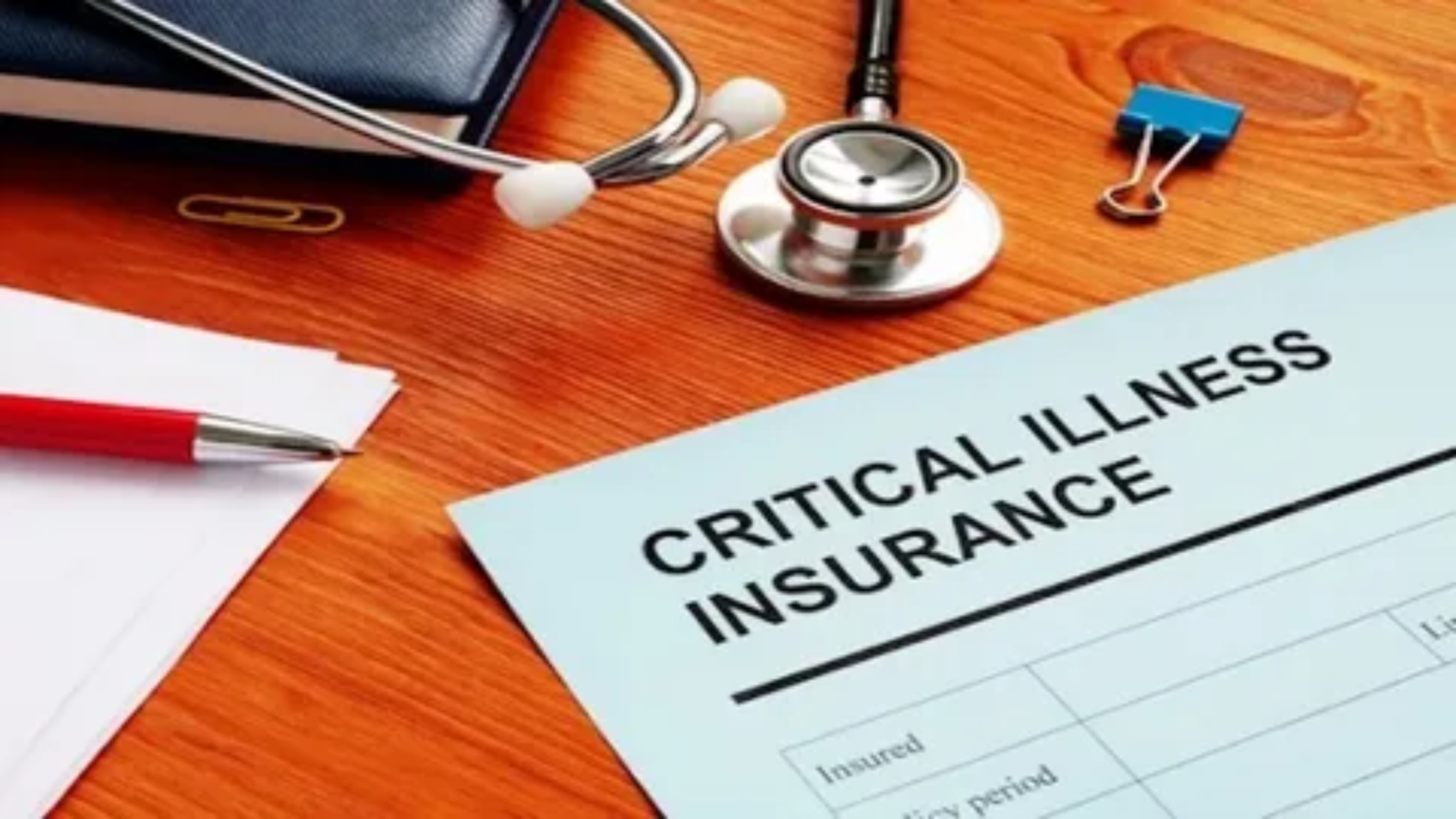Introduction: What is Critical Illness Insurance Anyway?
Imagine you’re chilling on a Sunday afternoon, sipping coffee, and suddenly life decides to throw you a curveball in the form of a serious illness. Not exactly the plot twist anyone hopes for, right? Well, that’s where critical illness insurance comes in. Think of it as a financial safety net for when life decides to get a little too “interesting.” But before you decide to dive in, it’s important to understand what it is, how it works, and, most importantly, if it’s something you really need.
Critical illness insurance pays out a lump sum if you’re diagnosed with a severe medical condition covered by your policy. We’re talking about illnesses like cancer, heart attacks, or strokes—basically, the stuff that gives people nightmares. With this money, you can pay medical bills, cover living expenses, or even treat yourself to a vacation (because honestly, after a diagnosis like that, who wouldn’t need one?).
Why Would Anyone Need Critical Illness Insurance?
Let’s be real—most of us don’t sit around worrying about getting sick. Life is for living, not fretting, right? But illnesses have a funny way of sneaking up on people. And if it happens, it’s better to be prepared than to be caught with your pants down (metaphorically speaking, of course).
Here are a few reasons why critical illness insurance might be worth considering:
- The High Cost of Medical Treatment: Medical bills are like that clingy ex you can’t shake off—they just keep piling up, and they’re really hard to ignore. Treating serious illnesses can be outrageously expensive, even if you have health insurance. Critical illness insurance can help fill in the gaps.
- Income Protection: A critical illness can keep you out of work for months, or even years. Unless you’re rolling in cash, this can put a serious strain on your finances. This insurance helps replace lost income, so you can focus on getting better instead of stressing about your bills.
- Peace of Mind: Let’s be honest, peace of mind is priceless. Knowing you have a backup plan can help you sleep at night—even if your health decides to go on an unexpected rollercoaster ride.
How Does Critical Illness Insurance Work?
Alright, so here’s the deal. You sign up for a policy, pay regular premiums (which, let’s face it, will sting a little), and if you’re diagnosed with one of the critical illnesses covered by your policy, you get a lump-sum payment. No, it’s not a “get rich quick” scheme, but it can make a huge difference when medical costs are piling up faster than dishes in your sink.
The idea is simple: you use that money however you need. Want to pay for specialized treatment? Go for it. Need to pay off your mortgage? Sure thing. Want to splurge on a trip to the Bahamas because, hey, life’s short? Well, that’s up to you.
What Illnesses Are Covered?
Different policies cover different illnesses, so you should always read the fine print (we know, we know—boring, but necessary). Typically, most critical illness policies will cover:
- Cancer: Not every type, but most of the major ones.
- Heart Attack: It’s not just chest pain—it’s also a ticket to a hefty insurance claim.
- Stroke: When your brain decides to take an unwanted holiday.
- Kidney Failure: When your kidneys start slacking off.
- Major Organ Transplant: Because getting a new organ is a big deal (and expensive too).
The Pros and Cons of Critical Illness Insurance
Every coin has two sides, and so does critical illness insurance. Here’s a quick look at the pros and cons:
| Pros | Cons |
|---|---|
| Provides a lump-sum payout for treatment or expenses | Premiums can be expensive depending on your age and health |
| Offers peace of mind during difficult times | Not all illnesses are covered, and coverage can be limited |
| Can be used for any expense, not just medical bills | Some policies have a long list of exclusions |
Is Critical Illness Insurance Right for You?
Okay, so now you know what it is, but the million-dollar question remains: Do you need it? Let’s break it down further. Below are some situations where critical illness insurance could be a good choice and others where it might not be necessary.
When You Might Need It
- You Have a Family History of Critical Illness: If Aunt Margaret, Uncle Bob, and even your pet goldfish have all had critical illnesses, you might want to play it safe.
- You’re the Sole Breadwinner: If your income supports your whole family, losing it due to illness could be catastrophic.
- You Don’t Have Much in Savings: A critical illness can drain savings faster than a kid drains your energy. If you don’t have much of a financial cushion, this insurance could be a lifesaver.
When You Might Not Need It
- You’re Already Loaded: If you have substantial savings or a hefty emergency fund, you might not need extra coverage.
- You Have Comprehensive Health Insurance: If your health insurance already covers the costs you’d face in case of a serious illness, this policy might be redundant.
- You’re Young and Fit: If you’re in your twenties, run marathons, and your idea of a binge is a whole bowl of kale chips, you might not need this—yet.
How Much Coverage Should You Get?
This one is tricky, but it’s all about balance. Too little coverage, and you’re back at square one—struggling to pay the bills. Too much, and you’ll be paying premiums so high that you’ll need a critical illness just to justify them.
A good rule of thumb is to get coverage that will cover at least two years of your income. This gives you time to recover without constantly worrying about finances. Remember, you’re aiming for peace of mind, not stress-induced sleepless nights.
The Funny Thing About Insurance
Here’s the thing about insurance: It’s one of those things you pay for, hoping you never have to use. It’s like buying a fire extinguisher—you don’t actually want to use it, but if the kitchen goes up in flames because you got a little too ambitious with the flambé, you’ll be glad it’s there.
How to Choose the Right Policy
Picking a critical illness policy isn’t like picking out a new pair of sneakers. You’ll want to put a bit more thought into it. Here are some tips to make sure you choose the right one:
- Compare Different Providers: Don’t just go with the first company you find—shop around. Compare premiums, coverage, and exclusions.
- Read the Fine Print: Yeah, we know it’s boring. But you need to understand what is and isn’t covered.
- Check the List of Covered Illnesses: Make sure the policy covers illnesses that are relevant to your personal and family health history.
- Consider the Waiting Period: Many policies have a waiting period before coverage kicks in. Understand how long you’ll have to wait.
The Cost of Critical Illness Insurance
Premiums for critical illness insurance can vary—a lot. They depend on factors like:
- Age: The older you are, the more you’ll pay. It’s like getting into a club—the older you get, the less attractive the deal.
- Health Condition: If you’re already dealing with health issues, expect higher premiums.
- Coverage Amount: More coverage means more premiums. Shocking, right?
To give you a rough idea, a healthy 35-year-old might pay around $50 to $100 per month for a decent policy. But keep in mind, these numbers can vary depending on your specific circumstances.
Common Myths About Critical Illness Insurance
There are quite a few myths floating around about critical illness insurance, and we’re here to bust them:
- “My Health Insurance Covers Everything.” Health insurance is great, but it’s not always enough. Critical illness insurance helps cover things like lost income and other expenses that health insurance doesn’t.
- “I’m Too Young for Critical Illness Insurance.” You might be young, but illnesses don’t check your birth certificate before knocking on your door. It’s better to get coverage while you’re young and healthy, so your premiums stay low.
- “It’s Too Expensive.” It’s definitely an added expense, but compared to the cost of treating a critical illness, it could end up being worth every penny.
Real-Life Stories
Sometimes, it helps to hear real stories about how critical illness insurance has helped people.
- John’s Story: John was a 40-year-old with a good job and a happy family. Then he had a heart attack—the kind that makes you reevaluate everything. His health insurance covered some of the treatment, but he needed time off work to recover. Thankfully, his critical illness policy paid out enough to cover his mortgage and living expenses for a year, allowing him to focus on his health rather than his bills.
- Emily’s Story: Emily was diagnosed with cancer at age 35. The treatment was expensive, and she couldn’t work for almost two years. Her critical illness payout helped her afford specialized treatment and kept her financially afloat while she fought the illness.

Wrapping It Up: Should You Get Critical Illness Insurance?
So, what’s the verdict? Do you need critical illness insurance? It really depends on your situation. If you have dependents, little in savings, or a history of illness in your family, it could be worth considering. It’s one of those things you hope you never need, but if the worst happens, you’ll be glad you have it.
If you decide it’s for you, take your time comparing policies, understand what you’re getting, and make sure it fits your needs. And remember, life is unpredictable. Sometimes, the best thing you can do is prepare for the unexpected, then go back to enjoying every bit of it—hopefully without any nasty surprises.
